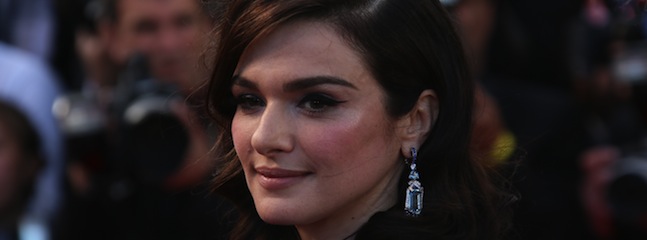Brexit, moving to London and Denial - An Interview with Rachel Weisz
Over the years, Rachel Weisz has become one of Hollywood's most treasured performers. We caught up with her to talk about Brexit, breaks from acting and her latest film, Denial.

London born and Cambridge educated, Rachel Weisz has wowed audiences from her breakthrough role as Egyptologist Evelyn in The Mummy to her Oscar-winning performance as Amnesty activist Tessa in The Constant Gardener. With an understated subtlety to her acting style, over the years she has gradually become one of our most treasured performers. We caught up with her to talk about Brexit, breaks from acting and her latest film, Denial.
In Denial, Rachel Weisz takes on the real-life experiences of Deborah Lipstadt, an academic and scholar who was sensationally sued by David Irving - the infamous ‘Holocaust denier’ - for taking him to task on his anti-Semitic views. It was the Final Solution on trial with those asking: did it really happen? The film is an absorbing account of a ludicrous moment in time, but as the actress claims, an important lesson on the current state of the world. “I think this film reminds us that history repeats itself,†she says, “and it’s our responsibility as humans to question and reflect on our mistakes.â€Weisz has never shied away from such emotive subjects in her films. After all, it was her portrayal of an activist who refused to be silenced and was murdered as a result - in the eponymous adaptation of John le Carré’s novel The Constant Gardener - that won her an Oscar. But Denial holds a particular relevance to Weisz, having been raised by two academic parents of Jewish heritage who left mainland Europe for England just before WWII.
“My parents fled the Holocaust in 1938 when they were very young,†she says matter-of-factly. “And prior to that, they had lived through and can still remember the passing of the anti-Semitic laws across Europe. I remember my mum would tell me about being shunned and ignored in school by her best friends whom she would have played with only the day before. People were turning their backs on them in the street, crossing the road - they lived through it.â€
Weisz is notoriously tight-lipped when it comes to her private life, particularly on her marriage to James Bond actor Daniel Craig, but will happily discuss other contentious topics such as the UK’s imminent departure from the EU. “I think I echo the sentiments of many when I say I was in complete shock. I don’t think any expected the outcome, even those who voted to leave; they didn’t think it was possible,â€
“But the overall feeling of mass discontent was a much louder voice than anticipated and ultimately, it was those living outside the London bubble who were angry and demanded to be heard. This was the outcome. I feel very sad for the young generation; I feel it was very unjust for them. One generation decided for another and that makes me sad.â€
The mention of a certain Trump also elicits a response, but it is less reactive and more about the exhausting practicalities of relocating one’s entire family. “I really don’t know what I will do. I love New York, I’m quite settled and happy here, but I love London. It will always be my home and I spend half my time there,†she says. “Depending on what happens down the line, I may be spending all my time there again!â€
Naturally, a career in cinema means Weisz is often away filming. Last year for example, she was spotted donning a black bonnet as she rode a white horse on a Devon beach for the upcoming My Cousin Rachel. The sombre period drama is a marked change from her recent flurry of off-beat art-house career choices, which included last year’s oddball The Lobster and Paolo Sorrentino’s Youth. But the actress has earned her freedom and having taken a break from work, is simply seeking to explore her craft as an artist. “It was completely my decision to take some time away, be with the family, and concentrate on life without the distraction of work floating around,†she explains, before adding, “Now I’m really appreciating, probably more than ever, the material I’m working with, the people, the subjects and stories.â€
Denial is out in UK cinemas now.